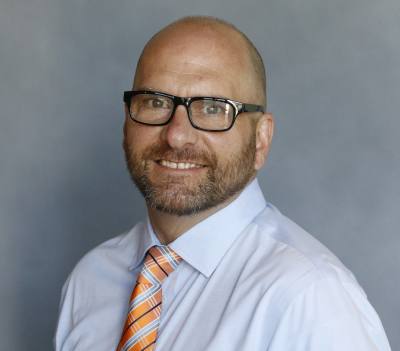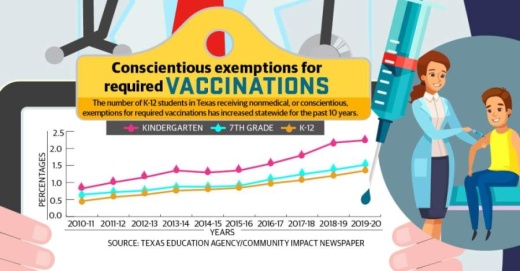Each year, the TEA distributes the Annual Survey of Immunization Status to approximately 1,200 ISDs and 900 accredited private schools statewide. According to the most recent survey, which was made available April 30, 1.35% of all K-12 students in Texas during the 2019-20 school year received conscientious exemptions, which include those based on religious beliefs, an increase from the 1.20% average in 2018-19.
Conscientious vaccine exemptions in the state’s private schools outpace those same exemptions in public schools, according to TEA. During the 2019-20 school year, 3.10% of private school K-12 students received conscientious exemptions as compared to 1.28% of K-12 students in ISDs.
The survey gauges three groups: students enrolled in kindergarten, seventh grade and K-12. The percentages of students receiving conscientious exemptions at the kindergarten and seventh-grade levels are greater than the broader, K-12 percentage, according to the data.
The data included state data from surveys dating back to the 2010-11 school year.
In 2003, state lawmakers made it legal for parents to seek vaccine exemptions for their children for reasons of conscience. Before 2003, the state only considered religious or medical reasons.
In Austin, two recent cases of rubella and measles, which had been eradicated and are vaccine-preventable diseases, caused concern among medical leaders in the state capital.
Both diseases are preventable by the mumps, measles and rubella vaccine (MMR), which is required for Texas children enrolling in school.
Although the self-reported Annual Report of Immunization Status is mandated by law, every year, some schools do not participate in the survey, according to TEA.
For a list of required vaccines for K-12, child care facilities and colleges and universities, visit the Texas Health and Human Services vaccination page.





